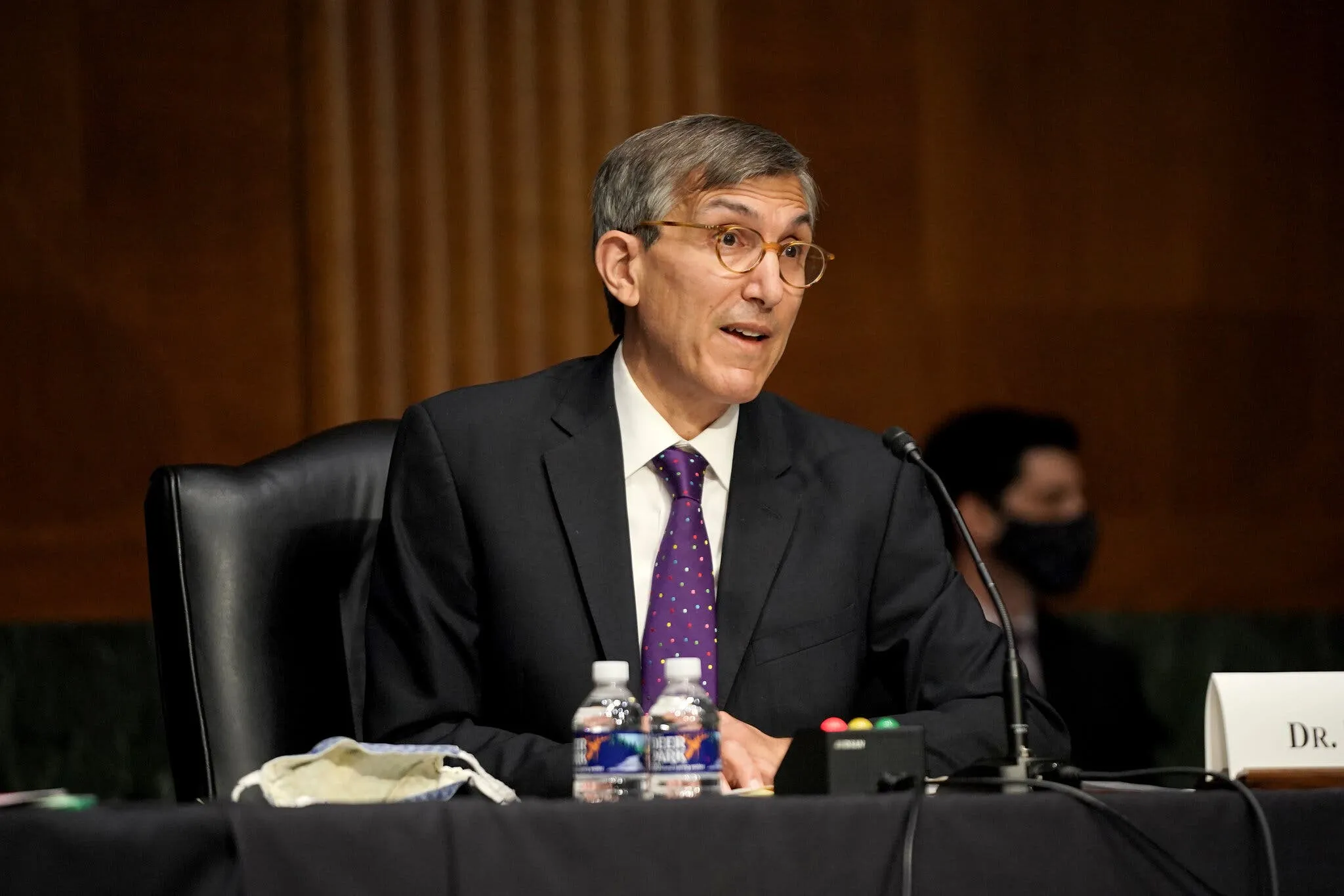“`markdown
Peter Marks: The Controversial Figure Shaking Up America’s Media Landscape
In a significant shift within the public health sector, Peter Marks, a prominent official at the FDA, has recently resigned from his position, raising eyebrows and igniting debates across the nation. Marks, who has played a crucial role in vaccine approvals, particularly during the COVID-19 pandemic, cited his concerns over rampant misinformation regarding vaccines as the primary reason for his departure. This move has not only shocked his colleagues but has also sparked a broader conversation about the responsibilities of government officials in the fight against misinformation in today’s media landscape.
Marks’ resignation comes in direct opposition to statements made by influential public figures, notably Robert F. Kennedy Jr., whose anti-vaccine rhetoric has been widely criticized. Marks has long been a staunch advocate for vaccine safety and public health, often engaging in public discourse to emphasize the importance of vaccination. His commitment to transparency and accountability in health communications has made him a respected figure among many health professionals, but his departure from the FDA has raised questions about the future of public health communication and the challenges that officials face in a politically charged environment.
The media landscape is increasingly influenced by figures like Marks, who challenge misinformation and advocate for science-based policies. His resignation has drawn mixed reactions; while many praise his courage to stand up against misleading narratives, others criticize the implications for public health policy. The polarized views on vaccine efficacy and public health measures in the U.S. reflect a society deeply divided on these issues.
The Role of Misinformation
Misinformation has become a significant barrier to public health efforts, particularly during the pandemic. Marks has emphasized the importance of scientific evidence in policymaking, often clashing with anti-vaccine advocates and their narratives. His resignation highlights the urgent need for stronger regulations on health-related misinformation in the media. As Marks stated, “The integrity of our health communication is paramount in ensuring public trust.”
The implications of Marks’ resignation may extend far beyond his immediate role at the FDA. Public trust in health authorities is fragile, and the media’s portrayal of health issues can significantly shape public perception. As Marks’ influence extends beyond the FDA, his departure may lead to a renewed focus on the intersection of health communication and media responsibility in the fight against misinformation.
A Pivotal Moment for Public Health
Marks’ career has been marked by a commitment to promoting vaccine education and advocating for informed decision-making among the public regarding vaccinations. His involvement in key decisions related to vaccine approvals has placed him at the center of public health debates. The media’s portrayal of his resignation will likely shape future narratives around vaccine safety and public health initiatives.
With his resignation, discussions about the role of government officials in combating misinformation have intensified. Marks’ actions have drawn both support and criticism, reflecting the ongoing struggles faced by public health officials in navigating a complex media environment. As one public health expert noted, “Marks’ departure is a pivotal moment for public health officials, as it underscores the growing challenges they face in a politically charged landscape.”
The Future of Public Health Communication
As the media landscape continues to evolve, the role of figures like Marks in advocating for science-based policies becomes increasingly critical. His stance against misinformation has led to increased scrutiny of social media platforms and their responsibility in disseminating accurate health information. The challenges faced by public health officials are not merely administrative; they are fundamentally about the integrity of public health communication.
The mixed reactions to Marks’ resignation reflect a society grappling with differing views on public health measures. Some individuals commend his bravery, while others express concern about the implications for public health policy. This division underscores the need for ongoing dialogue about the importance of accurate health information and the responsibilities of both officials and the media.
Conclusion
Peter Marks’ resignation marks a significant moment in America’s media landscape and public health narrative. His commitment to transparency and accountability has left an indelible mark on the discourse surrounding vaccination and public health. As the nation grapples with misinformation, Marks’ legacy may include a renewed focus on the importance of health communication and the media’s role in shaping public perceptions.
In a world where misinformation can spread rapidly, the need for credible voices advocating for science-based policies has never been more crucial. The future of public health communication depends on the ability of officials to engage effectively with the public and combat misleading narratives. As we move forward, the lessons learned from Marks’ tenure and resignation will undoubtedly shape the ongoing battle for public trust in health authorities and the media’s role in this vital fight.
“`






Leave a Comment